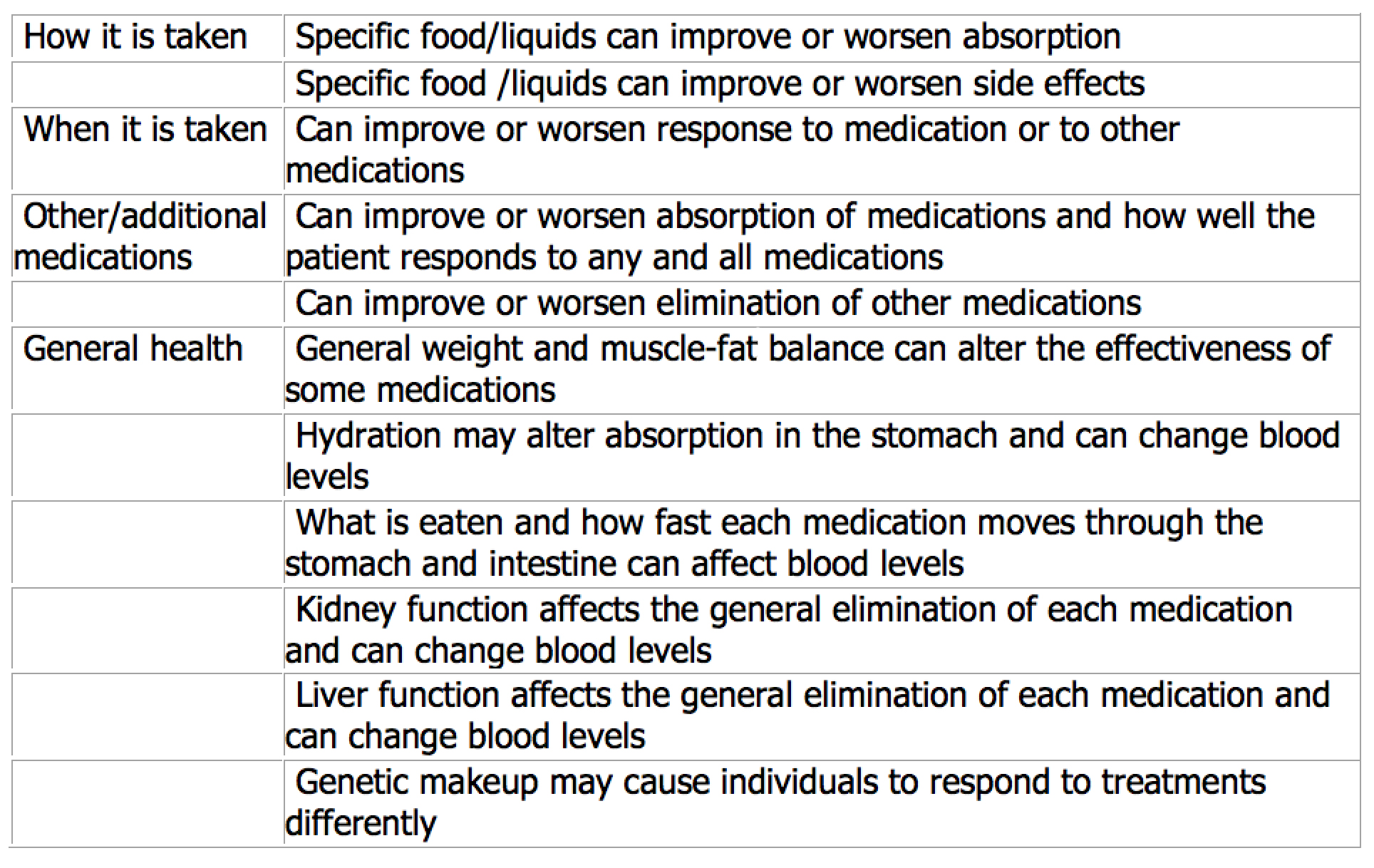
Medications and Different Brains: Ensuring Safe Prescription Use For Everyone
By Lynn Harrelson, Pharm BS, FASCP
So… why are medications such a problem?
Today’s medications are more complicated, not the simple medications of past generations. Earlier medications were based on active ingredients from plants. The various systems in the body could handle these plant based products a little better.
Not so today. In the last 50 to 70 years, we have increasingly used more chemically complex prescription and non-prescription medications. Sadly, the various systems in our bodies have not evolved to handle the advanced chemistry in today’s medicine. Additionally, we are taking many more medications which put us in a more chemically saturated environment.
The way our bodies respond to medications can vary based on the intended use, and how many we are taking. The more medications you are taking, the more unpredictable the interactions and outcomes become. And remember, in discussing medications, we must always consider all medications used: prescription, non-prescription, over the counter medications, supplements, vitamins, minerals, “natural products”.
Consider, if a simple food can complicate how we respond to medications, we can expect other things that we consume to affect medications. The use of medication becomes more and more complicated with each and every medication added- and based on how each is used. These outcomes and results are even more problematic for both the older as well as the younger patients. Their kidneys and livers don’t work the same way as the average adult who takes many medications. Both our youth and seniors have brains that can be adversely affected by the lack of management of the medications used. It is important to understand that the effectiveness of each medication can be altered by any and/or all of the following:
Variables That Affect Prescriptions

Important Tips for Proper Prescription Use:
- Always read the informational material (consumer advisory sheet) provided with each prescription. Request this information from the prescriber if you get samples or trial packs.
- Check the prescription labels for special priority concerns or advice. Carefully read any information provided with other items consumed for health (non-prescription, vitamins, supplements, etc.).
- Ask questions about using any medication or supplement.
- Be sure that the information provided to you is from a trusted source.
- Be sure that all healthcare providers are aware of any and all products that are being used and not just the prescription or over-the-counter medications.
- Try to use your medications in the best possible way, consistently, over time.
- If there is a change in the way you or your child feels, assume that the change is a medication side-effect until proven otherwise.
Parents, family, caregivers and patients are the first-line defense in preventing and/or addressing medication related problems which could be considered our nation’s 4th most costly disease. If we can address/prevent medication related problems, we would be taking a huge step in addressing the nation’s spiraling healthcare costs, assuring our loved one is healthier and more independent for a longer period.
If you wish to learn more about how medication management services can help you or a loved one stay healthier, more active and independent for a longer period of time, please visit my website www.SeniorPharmacySolutions.com for information and a medication self-assessment and forms. In the coming months, I will share some experiences of managing medications for our seniors and our youth.
Lynn Harrelson, a 1973 graduate of the University of Kentucky College of Pharmacy received the national 2012 Excellence in Innovation award as recognition for her pioneering eHOP concept, enhanced Healthcare Outcomes Program. The Ohio Valley Appalachia Regional Geriatric Education Center also has recognized her comprehensive medication management services as a best practice model. Throughout her career, Ms. Harrelson has held various positions where she developed and implemented innovative patient-centered programs. Practicing as a geriatric integrative clinical pharmacist in various practice settings, her services have supported improved health and conserved resources by avoiding medication related problems and their associated costs. The focus of her practice has been senior patients and other others using multiple medications.
Today, Ms. Harrelson practices as a Senior Care Pharmacist. She serves as community resource for pharmacy related issues for senior and those using multiple medications and has penned articles for several publications. She supports Louisville’s Healthy Home Town Initiatives with her presentations throughout the greater Louisville area, provides presentations at healthcare related meetings and pens articles for publications throughout the United States including her eNewsletter, the Stay Well Tablet as well as providing support for questions on several national websites.
Her innovative Senior Pharmacy Solutions Medication Therapy Management Services have been instrumental in helping seniors and other taking multiple medications use them more wisely, improving their overall well-being and supporting their continued independence.
To learn more about how medication management services can help you, please visit my website www.SeniorPharmacySolutions.com for information and a medication self-assessment and forms.
For more information, e-mail: lharrelson@seniorpharmacysolutions.onmicrosoft.com




